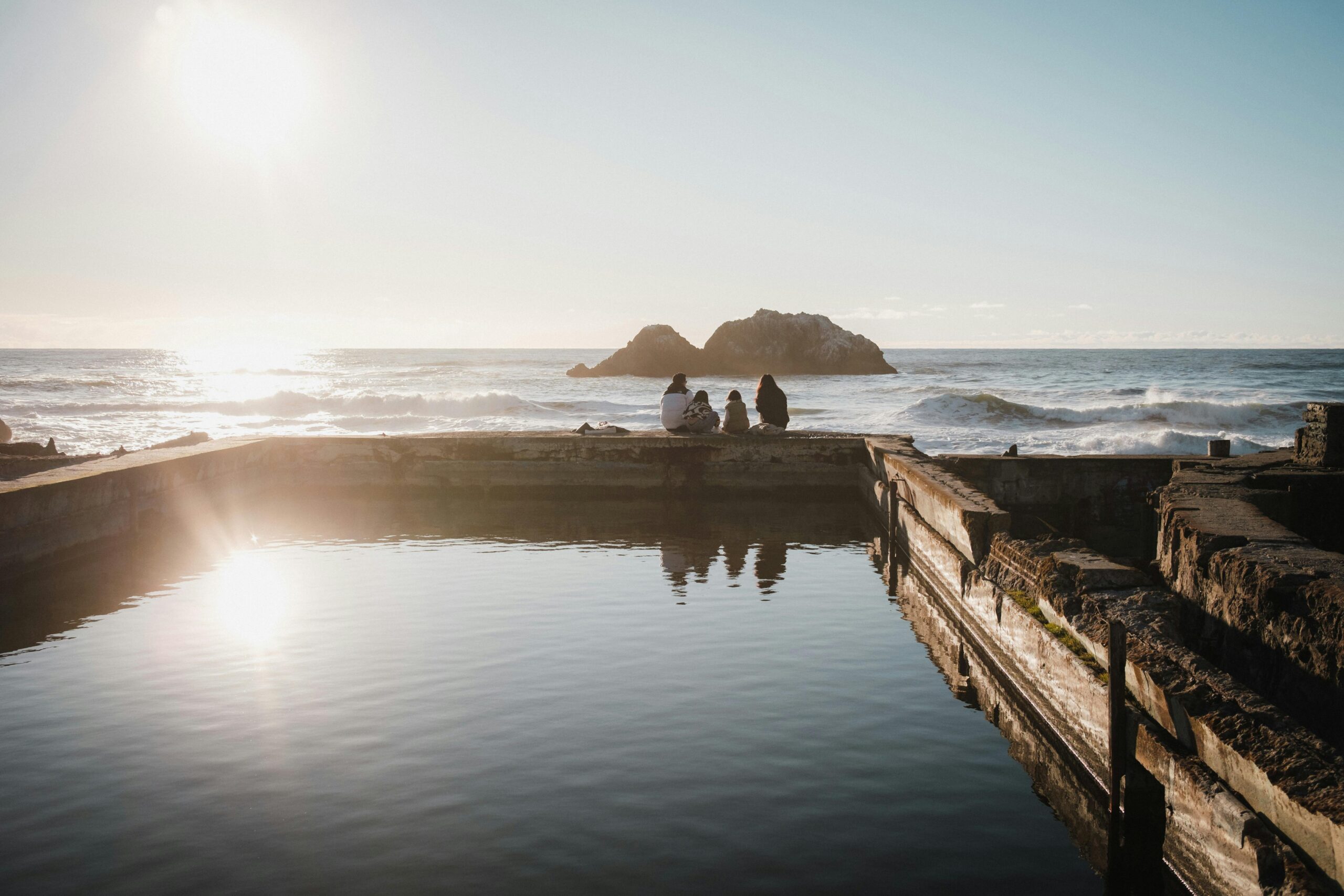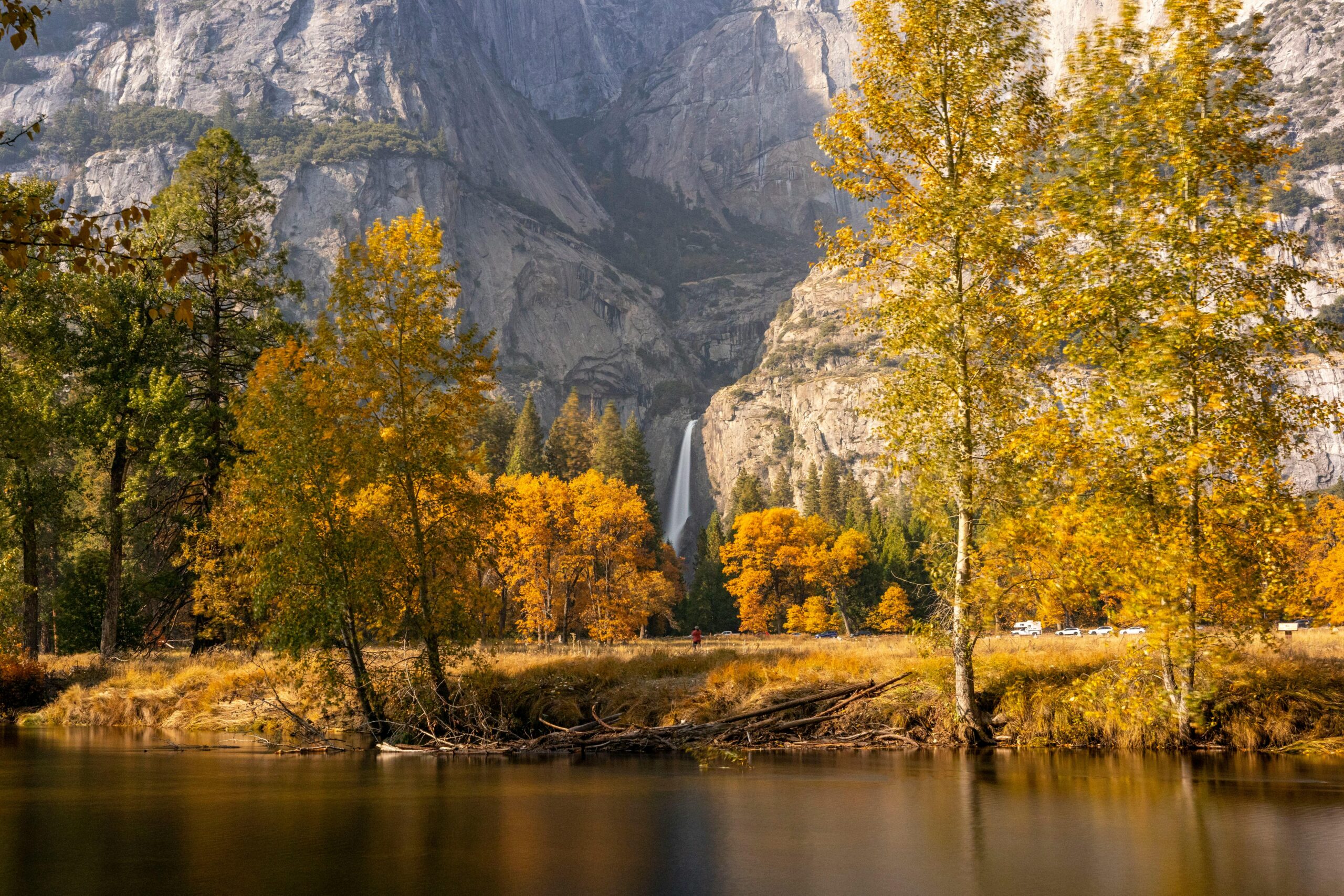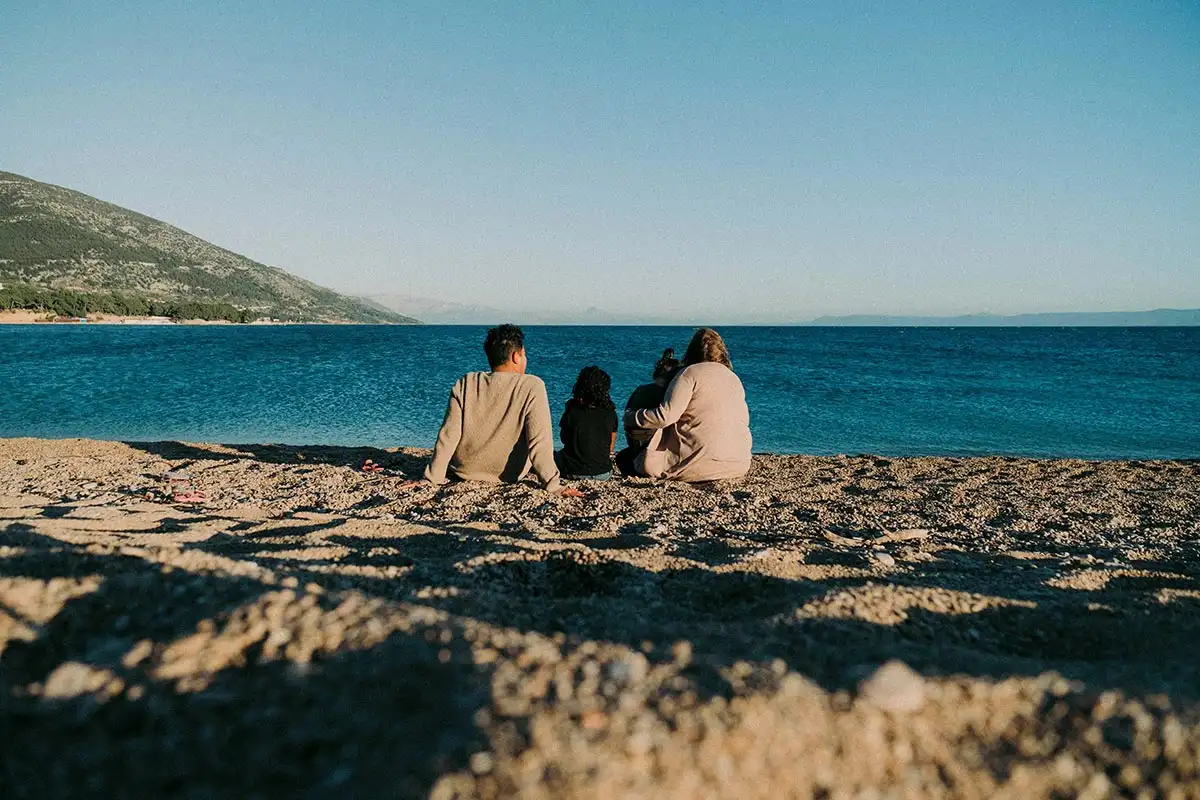
Traveling Sober in California: Tips for Vacations in the Golden State
Medically Reviewed by:

Dr. Marco M. Zahedi
Medical Director, Compassion Recovery Center

Dr. Michael Majeski
Licensed Psychologist (LP), Compassion Recovery Center
Table of Contents
The Golden State on Your Terms: An Introduction to Sober Travel in California
California, the Golden State, beckons travelers with its dazzling array of landscapes and experiences. From the sun-kissed beaches of Southern California and the iconic cityscape of San Francisco to the majestic peaks of the Sierra Nevada and the serene beauty of its deserts and wine country (which can still be enjoyed for its scenery and food!), California offers something for everyone. For individuals in recovery, the idea of traveling can sometimes feel daunting. The change in routine, new environments, and potential exposure to triggers can seem like formidable challenges. However, maintaining sobriety while exploring the wonders of California is not only possible but can be an incredibly rewarding and empowering experience. It’s about discovering the state’s beauty with a clear mind and an open heart, creating memories that are authentic and cherished.
The journey of recovery is ongoing, and it doesn’t have to mean putting your life, including travel, on hold. Instead, it’s about integrating your commitment to sobriety into all aspects of your life, transforming challenges into opportunities for growth. This is where preparation and support become invaluable. Understanding how to navigate new situations, knowing your triggers, and having a robust support system in place are key components of successful sober travel. At Compassion Recovery Center, we understand the unique needs of individuals seeking to balance their recovery with a fulfilling life. As a specialized remote drug rehab Orange County provider, we offer flexible telehealth addiction treatment options, primarily serving Orange County, California, but accessible wherever your journey takes you within the state. Our mission is to provide compassionate, effective care that fits your life, allowing you to explore, grow, and thrive in your sobriety. Whether you’re planning a weekend getaway or a longer exploration of California, our Virtual IOP Program and other services are designed to support you every step of the way. If you’re considering how to make your California dream trip a sober reality, we encourage you to reach out today to learn how we can help.

Understanding Sober Travel: A New Way to Explore
Sober travel, at its core, means choosing to experience the world without the influence of alcohol or drugs. It’s a conscious decision to be fully present, to engage with your surroundings, and to create memories untainted by substance use. This approach to travel offers a wealth of benefits that go far beyond simply avoiding relapse. When you travel sober, you often find a deeper connection to the places you visit and the people you meet. Your senses are heightened, allowing you to fully appreciate the sights, sounds, and experiences that each new destination offers. Imagine watching a sunrise over Yosemite Valley with complete clarity, or truly savoring a gourmet meal without the dulling effects of alcohol. These are the kinds of authentic moments that sober travel fosters.
The benefits of traveling sober are numerous. Firstly, it significantly boosts self-esteem and confidence. Successfully navigating a trip while maintaining your sobriety is a powerful affirmation of your strength and commitment to recovery. Secondly, it allows for clearer thinking and better decision-making, which is crucial when you’re in unfamiliar environments. You’re more likely to stay safe, manage your budget effectively, and make choices that align with your well-being. Thirdly, sober travel can lead to more meaningful interactions. Without the haze of substances, you can connect with others on a more genuine level, whether it’s fellow travelers, locals, or even your travel companions. Furthermore, it can be an opportunity to discover new interests and passions. Instead of centering activities around bars or parties, you might find joy in early morning hikes, museum visits, cooking classes, or volunteering – experiences that enrich your life and support your recovery. You might find our guide on sober fun and activities inspiring for your trip.
However, it’s also important to acknowledge the common challenges faced by sober travelers. One of the biggest hurdles can be encountering triggers. Airports often have prominent bars, social gatherings might involve alcohol, and certain destinations can be heavily associated with drinking culture. Feelings of loneliness or isolation can also creep in, especially if you’re traveling alone or if your previous travel experiences were heavily tied to substance use. The disruption of routine, which is often a cornerstone of early recovery, can also be unsettling. Additionally, there might be peer pressure, explicit or implicit, to partake in substances, particularly in festive environments. Recognizing these potential challenges is the first step in preparing to overcome them. One helpful resource is learning about dealing with triggers and how to manage them effectively.
California, with its incredible diversity, is uniquely positioned to support sober travel. The state’s emphasis on health and wellness means there are abundant opportunities for activities that nourish the mind, body, and spirit. From world-class yoga retreats and meditation centers to stunning natural landscapes perfect for hiking, biking, and kayaking, California offers countless ways to engage in healthy, fulfilling experiences. Its diverse culinary scene also provides ample opportunities to enjoy delicious, sophisticated non-alcoholic beverages and gourmet food. Many communities in California have strong recovery networks, making it easier to find support meetings or connect with like-minded individuals. By focusing on these positive aspects, you can plan a California adventure that not only respects your sobriety but actively enhances it. If you’re looking for support tailored to your needs, explore our Virtual IOP Program which can be a great companion to your sober travel plans.
Planning Your Sober Vacation in California: Setting the Stage for Success
A successful sober vacation in California, like any rewarding travel experience, begins with thoughtful planning. This proactive approach allows you to anticipate potential challenges, build in safeguards for your sobriety, and design an itinerary that aligns with your recovery goals and personal interests. Taking the time to plan carefully can transform anxiety about traveling sober into excitement for the enriching experiences ahead.
The first step is researching and selecting sober-friendly destinations and accommodations. California is vast and varied, offering everything from bustling cities to tranquil natural retreats. Consider what kind of environment best supports your sobriety. For some, the serenity of national parks like Yosemite, Joshua Tree, or the Redwood National and State Parks offers a perfect escape, with opportunities for hiking, reflection, and connecting with nature. Others might prefer a coastal town known for its art scene and wellness activities, like Laguna Beach or Carmel-by-the-Sea, rather than one known primarily for nightlife. When looking for accommodations, seek out places that promote a quiet, healthy environment. This could be a wellness-focused hotel, a boutique inn away from bar districts, or a vacation rental with a clear no-party policy. Reading reviews with an eye for comments about noise levels and atmosphere can be very helpful. There are also dedicated sober travel websites and communities that list and review sober-friendly lodging and tour operators.
Once you have some destinations in mind, the next step is creating a travel itinerary that actively supports your sobriety. While spontaneity can be part of travel, having a general structure can be incredibly grounding, especially in recovery. Plan a balance of activities that you genuinely enjoy and that don’t revolve around alcohol or drugs. This could include visiting museums, exploring historical sites, taking guided nature walks, attending a local farmers market, trying a new outdoor sport like surfing or kayaking (with an instructor if needed), or even scheduling downtime for reading and reflection. It’s also wise to build in time for your regular recovery practices, such as virtual therapy sessions or online support group meetings. If you’re part of our Remote IOP California program at Compassion Recovery Center, you can often schedule your sessions to fit your travel plans. Remember, the importance of routine in early recovery extends to travel, even if it’s a modified version.
Perhaps one of the most crucial aspects of planning is setting clear intentions for your trip and understanding your personal triggers. Before you even pack your bags, take some time to reflect: Why are you taking this trip? What do you hope to gain from it? Is it for relaxation, adventure, connection, or personal growth? Setting positive intentions can provide a strong anchor for your sobriety. Simultaneously, be honest with yourself about potential triggers. Are there specific situations, places, people, or even times of day that might challenge your resolve? For example, an airport bar, a concert where alcohol is prevalent, or even feelings of fatigue or boredom can be triggers. Develop a plan for how you will respond if a trigger arises. This might involve using coping techniques learned in therapy (like those from Online CBT therapy), calling a sponsor or support person, removing yourself from the situation, or engaging in a distracting, positive activity. Knowing these in advance can make all the difference. For personalized support in identifying triggers and developing coping strategies, consider a Free Assessment with our team.
Financial planning is also a practical part of this stage. Sometimes, choosing sober-friendly options or accommodations away from nightlife might have different cost implications. Budgeting for healthy meals, activities, and ensuring you have funds for any necessary support (like reliable internet for telehealth sessions) is important. If you’re wondering about coverage for treatment services that can support you, you can check insurance coverage through our website.

Tips for Staying Sober While Traveling in the Golden State
Once your bags are packed and your itinerary is set, the adventure of traveling sober in California begins. While on the road, several practical strategies can help you navigate challenges, stay grounded, and fully enjoy your journey without compromising your recovery. These tips focus on maintaining connections, utilizing available resources, and engaging in your surroundings in a healthy, positive way.
First and foremost, stay connected with your support network. Sobriety thrives in connection, and travel shouldn’t mean isolation. Schedule regular check-ins with your sponsor, therapist, sober friends, or supportive family members. A quick text, phone call, or video chat can provide encouragement, accountability, and a sounding board if you encounter a difficult situation. If you’re part of a support group, see if they have online meetings you can join, or find out if there are local meetings in the areas you’ll be visiting. Many 12-step programs have apps that can help you locate meetings nearby. Remember, your support system wants you to succeed and will be happy to hear from you. This connection is vital, and we discuss building a sober support network in more detail on our blog.
Leveraging telehealth services for ongoing support is an invaluable tool for the sober traveler. At Compassion Recovery Center, our telehealth addiction treatment services are designed for flexibility, allowing you to continue your therapy sessions, including individual counseling and group therapy, from anywhere with an internet connection. Whether you’re enrolled in our Intensive Outpatient Program (IOP) or receiving other forms of mental health treatment, maintaining this continuity of care can provide a stable anchor during the disruptions of travel. Knowing you have a scheduled session with a trusted therapist can be incredibly reassuring. If you’re an Orange County resident receiving Orange County IOP services from us, this remote access means your care seamlessly travels with you throughout California.
Actively engage in sober activities and events. California is brimming with opportunities for fun and fulfillment that don’t involve alcohol or drugs. Make a point to seek these out. Explore the state’s natural wonders: hike in a national park, learn to surf at a renowned beach, or simply enjoy a mindful walk along the coast. Immerse yourself in culture: visit museums, art galleries, historical landmarks, or attend a theatrical performance. Many communities also host sober-specific events, from sober raves and ecstatic dances to alcohol-free mixers and game nights. A little online research before or during your trip can uncover these hidden gems. Engaging in activities you genuinely enjoy will not only keep you occupied but also reinforce the positive aspects of your sober lifestyle. Consider exploring techniques for embracing boredom and finding new ways to enjoy life without substances, which can be useful during travel downtime.
Prioritize self-care. Travel can be tiring, and when you’re fatigued, your defenses can be lower. Ensure you’re getting adequate sleep, eating nutritious meals, and staying hydrated. If exercise is part of your routine, find ways to incorporate it into your travels, whether it’s using a hotel gym, going for a run, or doing yoga in your room. Mindfulness and meditation can also be powerful tools for staying centered and managing stress. Even a few minutes of quiet reflection each day can make a big difference. If sleep issues in recovery are a concern, proactive planning for a good sleep environment while traveling is important. Don’t hesitate to get help now if you find yourself struggling; our team is accessible.
Carry a “sobriety toolkit.” This could be a physical or mental list of resources and strategies. It might include phone numbers of support people, inspiring quotes or readings, a journal, meditation apps, or a pre-planned list of enjoyable, distracting activities. Having these tools readily available means you’re prepared if cravings or challenging emotions arise. Remember, coping with cravings involves having techniques to stay on track, and these are just as important when traveling.
Exploring California’s Sober-Friendly Attractions: A World of Discovery Awaits
California offers an astonishing variety of attractions and activities that are perfectly suited for sober travelers. Embracing these opportunities allows you to experience the Golden State’s diverse beauty and vibrant culture with clarity and presence. From majestic natural wonders to thriving urban centers, there’s no shortage of ways to create unforgettable sober memories.
Nature’s Masterpieces: California’s state and national parks are havens for those seeking tranquility and adventure.
- Yosemite National Park: Witness the grandeur of El Capitan and Half Dome, hike to breathtaking waterfalls like Yosemite Falls and Bridalveil Fall, or find serenity amongst the giant sequoias in Mariposa Grove. Sober activities: hiking, rock climbing (with guides), photography, stargazing, attending ranger-led programs.
- Joshua Tree National Park: Explore a unique desert landscape dotted with rugged rock formations and the iconic Joshua trees. Perfect for bouldering, hiking, and experiencing incredible sunsets and dark night skies.
- Redwood National and State Parks: Walk among the tallest trees on Earth. The sheer scale of these ancient giants is humbling and inspiring. Enjoy scenic drives, gentle trails, and the misty coastal atmosphere.
- Big Sur: This rugged stretch of coastline offers dramatic cliffs, stunning ocean views, and opportunities for hiking in Pfeiffer Big Sur State Park or Julia Pfeiffer Burns State Park (home to McWay Falls).
- Point Reyes National Seashore: Discover windswept beaches, dramatic sea cliffs, diverse wildlife (including tule elk and migrating whales), and the historic Point Reyes Lighthouse.
Coastal Charms and Beach Bliss (Beyond the Party Scene): California’s coastline is legendary, and many areas offer peaceful enjoyment.
- Laguna Beach: Known for its artistic community, coves, and tide pools. Enjoy gallery hopping, walking Heisler Park, or simply relaxing on the sand. While it has a lively atmosphere, it’s also rich in natural beauty and art.
- Carmel-by-the-Sea: A charming village with fairytale cottages, art galleries, unique shops, and a beautiful white-sand beach. Ideal for leisurely strolls and enjoying a sophisticated, quieter ambiance.
- La Jolla (San Diego): Offers stunning coves like La Jolla Cove (famous for its sea lions), beautiful beaches for swimming and sunbathing, and the Birch Aquarium.
- Santa Monica & Venice Beach (with a mindful approach): While known for their vibrant (and sometimes chaotic) energy, early morning walks or bike rides along the beach path, visits to the Santa Monica Pier Aquarium, or exploring the Venice Canals can be enjoyable sober activities. Focus on the daytime, healthier aspects.
Urban Adventures with a Sober Lens: California’s cities are packed with culture and history.
- San Francisco: Ride a cable car, explore Golden Gate Park (home to the California Academy of Sciences and de Young Museum), visit Alcatraz, walk across the Golden Gate Bridge, and discover diverse neighborhoods like Chinatown and North Beach (focusing on its literary history).
- Los Angeles: Visit world-class museums like The Getty Center or LACMA, hike to the Hollywood Sign or Griffith Observatory for panoramic city views, explore diverse culinary scenes in neighborhoods like Little Tokyo or Koreatown, or attend a show at the Walt Disney Concert Hall. Many parts of LA have strong wellness and fitness cultures.
- San Diego: Explore Balboa Park with its numerous museums and gardens, visit the historic Gaslamp Quarter during the day for its architecture, or enjoy the waterfront at Seaport Village.
Wellness and Mindful Retreats: California is a hub for wellness.
- Ojai: This small town is renowned for its spiritual retreats, spas, and focus on health and well-being. Enjoy hiking, visiting meditation centers, or browsing unique local shops.
- Consider day passes to spas for relaxation, or look for yoga and meditation workshops in the areas you visit. Many communities offer these.
Engaging Activities without Alcohol or Drugs:
- Culinary Exploration: California is a foodie paradise. Focus on gourmet dining experiences, explore farmers markets, take a cooking class specializing in California cuisine, or enjoy artisanal coffee shops and non-alcoholic mixology bars that are increasingly popular.
- Outdoor Adventures: Beyond hiking, try surfing lessons, kayaking or paddleboarding in bays and lakes, whale watching tours, cycling scenic routes, or even hot air ballooning over wine country (enjoying the views, not just the wine).
- Arts and Culture: Attend live theater, concerts (many venues offer alcohol-free sections or focus on the performance), visit art festivals, or explore local craft fairs.
- Volunteer Tourism: Consider spending a few hours or a day volunteering for a local cause, such as a beach cleanup or at an animal sanctuary. This can be a deeply rewarding way to connect with a place and its community.
Sober-Friendly Accommodations:
- Look for hotels that emphasize wellness, have good fitness facilities, and are located away from noisy nightlife districts.
- Boutique inns or bed & breakfasts often offer a quieter, more personal experience.
- Vacation rentals (e.g., Airbnb, Vrbo) can be excellent, allowing you to control your environment. Read property rules carefully and choose places with “no parties” policies and positive reviews regarding tranquility.
- Campgrounds in state and national parks offer an immersive nature experience.
Integrating Compassion Recovery Center’s Services into Your California Travels
One of the greatest advantages of modern recovery support is its increasing accessibility, especially through telehealth. At Compassion Recovery Center, we specialize in providing comprehensive telehealth addiction treatment, ensuring that your journey to wellness doesn’t have to be confined by geography. If you’re planning to travel sober in California, our remote services can be an invaluable asset, offering consistent, professional support wherever you are in the Golden State, especially for those based in or connected to our Orange County IOP services.
Our Remote IOP California program is specifically designed to offer flexibility without compromising the quality or intensity of care. An Intensive Outpatient Program typically involves several hours of therapy per week, including both group and individual sessions. Traditionally, this commitment would make travel difficult. However, with our virtual platform, you can attend scheduled sessions from your hotel room, a quiet café with good Wi-Fi, or even a peaceful spot in nature, as long as you have a secure internet connection and privacy. This means you can continue to benefit from the structured support, peer interaction, and therapeutic guidance of our IOP while still experiencing the joys of travel. This is particularly beneficial for maintaining momentum in Drug Rehab Programs or Alcohol Rehab Programs without the disruption that travel might otherwise cause.
A cornerstone of effective addiction treatment is Cognitive Behavioral Therapy (CBT), and our Online CBT therapy sessions are seamlessly integrated into our telehealth offerings. Travel, while exciting, can also bring new stressors, unexpected triggers, or shifts in mood. CBT equips you with practical skills to identify negative thought patterns, challenge unhelpful beliefs, and develop healthier coping mechanisms. Having access to your therapist online while traveling means you can address these issues in real-time, reinforcing your ability to manage cravings, navigate social pressures, and maintain emotional balance. This ongoing therapeutic relationship provides a sense of stability and support, even when you’re far from home.
For individuals benefiting from Medication-Assisted Treatment (MAT), continuity of care is paramount. Our MAT treatment online services aim to support this. While regulations around prescribing controlled substances via telehealth vary and must always be strictly adhered to, we work with clients to ensure their MAT plan is managed effectively during travel. This may involve coordinating with local pharmacies where legally permissible, ensuring you have an adequate supply of medication (with appropriate documentation for travel), and maintaining regular virtual check-ins with your prescribing clinician. The goal is to prevent any interruption in this vital component of your recovery, helping to manage withdrawal symptoms and reduce cravings, which can be particularly important when navigating new environments.
Recovery often impacts not just the individual but also their relationships. If you’re traveling with a partner, the dynamics of your relationship in sobriety can be a focus. Compassion Recovery Center offers Virtual couples counseling rehab, allowing both partners to participate in therapy sessions together, even while on vacation. This can be an opportunity to strengthen communication, address any travel-related stressors as a team, and reinforce mutual support for sobriety. It helps ensure that the journey of recovery is a shared one, fostering understanding and collaboration.
Furthermore, many individuals struggling with substance use also face co-occurring mental health conditions, such as anxiety or depression. Our Dual Diagnosis Treatment approach addresses both addiction and mental health concurrently. Accessing this comprehensive care remotely means that all aspects of your well-being are supported during your travels. This holistic approach is crucial because unmanaged mental health symptoms can often be a trigger for relapse. Maintaining consistent therapeutic support for dual diagnosis issues while traveling can significantly enhance your ability to enjoy your trip and protect your sobriety. If you’re ready to see how our effective telehealth for substance abuse treatment can fit into your life, including your travel plans, we invite you to Verify Insurance or Contact Us for more information.
Navigating Social Waters: Maintaining Sobriety in Social Situations While Traveling
Traveling often involves social interactions, whether it’s meeting new people, dining out, attending events, or reconnecting with friends or family who may live in California. For individuals in recovery, these social situations can sometimes present challenges, particularly if alcohol or other substances are present. However, with preparation and the right strategies, you can navigate these encounters confidently while protecting your sobriety and still enjoying genuine connections.
One of the most common concerns is handling peer pressure or offers of substances. It’s helpful to have a few polite but firm refusal strategies ready. A simple, “No, thank you, I’m not drinking tonight,” or “I’ll just have a soda, thanks,” is often sufficient. You don’t owe anyone a lengthy explanation for your choice. If someone presses, you can reiterate your decision calmly or change the subject. Having a non-alcoholic drink in your hand (like sparkling water with lime, a craft soda, or a mocktail) can often prevent offers in the first place. Many establishments in California are quite progressive and offer creative and appealing non-alcoholic beverage options. Remember, setting boundaries is crucial to protect your sobriety, and this includes social settings.
When attending social gatherings, a bit of planning can go a long way. If possible, find out in advance what kind of event it will be. If you anticipate it being heavily centered around alcohol, consider your comfort level. You might decide to attend for a shorter period, arrive a bit later, or leave a bit earlier before things get too rowdy. Always have an exit strategy – know how you will get back to your accommodation, and don’t feel obligated to stay if you start to feel uncomfortable or triggered. Offering to be the designated driver can be a great way to have a built-in reason not to drink and also provide a valuable service to friends. Focus on the purpose of the gathering beyond substances – is it to celebrate something? To connect with specific people? Concentrate on engaging in meaningful conversations and enjoying the company.
Finding and joining local sober communities or events can be a fantastic way to socialize while on vacation without the pressure of alcohol or drugs. California has a vibrant recovery community in many areas. Apps like Meetup, or dedicated sober social networking platforms, can help you find alcohol-free activities, sober hiking groups, game nights, or even just casual coffee meetups. Attending a local 12-step meeting (AA, NA, SMART Recovery, etc.) is not only good for your recovery maintenance but also a great way to connect with local sober individuals who might offer insights into other sober-friendly activities in the area. You might be surprised by the welcoming and supportive connections you can make.
Communicating your sobriety to others is a personal choice, and how much you share depends on your comfort level and the situation. For casual acquaintances or in situations where it’s not particularly relevant, a simple refusal of a drink is usually enough. With closer friends or family, you might choose to be more open. If you do decide to share that you’re in recovery or simply don’t drink, do so confidently and without apology. Most people will be respectful of your choice. If someone reacts negatively or tries to pressure you, it says more about them than it does about you, and it’s a clear sign to limit your interaction with that person. Focus on connecting with people who respect your journey and your choices. Our team at Compassion Recovery Center can also help you practice these communication strategies; get help now to build these skills.
Remember HALT (Hungry, Angry, Lonely, Tired). These states can make you more vulnerable to cravings or poor decision-making in social situations. Before heading out to a social event, check in with yourself. Are you hungry? Grab a healthy snack. Feeling angry or resentful? Perhaps talk it through with a support person or do some journaling before you go. Feeling lonely? Maybe reach out to a sober friend or plan to connect with someone specific at the event. Tired? Ensure you’re well-rested, or perhaps opt for a quieter evening if fatigue is overwhelming. Being mindful of these basic needs can significantly bolster your resilience. Learning about stress management tips for people in recovery can also be very beneficial in these scenarios.
Embracing the Journey: Your Sober California Adventure Awaits
Traveling sober in California is not just a possibility; it’s an invitation to experience the Golden State’s incredible diversity with a newfound clarity, presence, and appreciation. From the majestic peaks of the Sierra Nevada to the sun-drenched beaches of the Pacific coast, from vibrant, culturally rich cities to serene desert landscapes, California offers a tapestry of experiences that can be deeply enriching when viewed through the lens of sobriety. The journey allows for authentic connections, genuine self-discovery, and the creation of lasting memories untainted by the haze of substances. It’s an opportunity to prove to yourself the strength of your recovery and the boundless joy that a sober life can bring, even amidst the excitement and potential challenges of travel.
The key to a successful and fulfilling sober vacation lies in thoughtful preparation, a commitment to self-care, and the willingness to utilize the support systems available to you. By researching sober-friendly destinations, creating an itinerary that aligns with your recovery goals, understanding your triggers, and staying connected to your support network, you set the stage for a positive experience. Engaging in the myriad of sober activities California offers – be it hiking in national parks, exploring museums, enjoying gourmet food, or connecting with local sober communities – transforms travel from a potential risk into a powerful affirmation of your new life. Remember, every successful sober experience, whether it’s a quiet evening at home or an adventurous trip, builds your confidence and reinforces your commitment to well-being.
At Compassion Recovery Center, we are dedicated to supporting you every step of the way on your recovery journey, including when you decide to explore the world. Our Virtual IOP Program and comprehensive telehealth addiction treatment services are designed to provide flexible, accessible, and compassionate care, primarily for residents of Orange County but extending support to those traveling within California. Whether you need ongoing Online CBT therapy, support for MAT treatment online, or virtual couples counseling rehab, our team is here to ensure your recovery remains a priority, no matter where your California adventures may lead. We believe that recovery should enhance your life, not limit it. So, we encourage you to explore the beauty and excitement of the Golden State, confident in the knowledge that support is always within reach. To learn more about how we can help you plan a safe and rewarding sober trip, or to check insurance coverage for our programs, please don’t hesitate to reach out today. Your sober California adventure awaits, and we’re here to help you make it a reality.
What is the California sober lifestyle?
What are some tips for staying sober while traveling?
- Plan ahead: Research sober-friendly activities and accommodations.
- Stay connected: Keep in touch with your support network (sponsor, therapist, sober friends).
- Utilize telehealth: Continue therapy sessions with services like our Virtual IOP Program.
- Know your triggers: Identify potential challenges and have a plan to address them.
- Attend meetings: Find local or online 12-step or other support group meetings.
- Prioritize self-care: Ensure adequate rest, nutrition, and hydration.
- Have an exit strategy for uncomfortable social situations.
- Carry a “sobriety toolkit” with resources and coping mechanisms.
How can I find sober-friendly activities in California?
- Explore National and State Parks: Hiking, sightseeing, camping (e.g., Yosemite, Joshua Tree, Big Sur).
- Visit Museums and Art Galleries: Abundant in cities like Los Angeles, San Francisco, and San Diego.
- Enjoy Outdoor Recreation: Surfing, kayaking, biking, whale watching.
- Attend Wellness Retreats or Workshops: Many focus on yoga, meditation, and health.
- Explore Farmers Markets and Foodie Scenes: Enjoy fresh produce and gourmet non-alcoholic options.
- Use apps like Meetup or search online for “sober events + [city name]” or “alcohol-free activities + [city name].”
- Connect with local recovery communities; they often have suggestions.
What telehealth services are available for addiction treatment in California?
- Virtual Intensive Outpatient Programs (IOP): Structured group and individual therapy accessible remotely.
- Online CBT Therapy: Cognitive Behavioral Therapy to manage thoughts and behaviors.
- Individual and Group Counseling: For ongoing support and skill-building.
- MAT Treatment Online: Support for Medication-Assisted Treatment, where clinically appropriate and legally permissible via telehealth.
- Dual Diagnosis Treatment: Addressing co-occurring mental health conditions.
- Virtual Couples Counseling Rehab: Therapy for partners navigating recovery together.
How can I maintain my sobriety during social events while traveling?
- Have a non-alcoholic drink in hand.
- Prepare polite refusals for offers of alcohol or drugs.
- Identify an escape route or plan if you feel uncomfortable.
- Focus on genuine conversations and the non-substance-related aspects of the event.
- Attend with a sober friend or connect with your support network before and after.
- Consider arriving late and leaving early if the event is heavily focused on drinking.
- Inform your host or close friends about your sobriety if you feel comfortable doing so.
- Practice HALT (Hungry, Angry, Lonely, Tired) and address these needs beforehand.
Struggling to balance life while needing support? Get expert virtual care and start your recovery journey, anytime, anywhere.
We’re learning more each day.
Researchers and doctors are making exciting progress in understanding mental health and addiction—bringing hope to millions.
Your genes don’t define you.
Genetics can play a part, but they don’t decide your future. Mental health is shaped by many factors, and healing is always possible.
There's no one-size-fits-all.
The right treatment often includes a mix of therapy, medication, and compassionate care—tailored just for you.


















